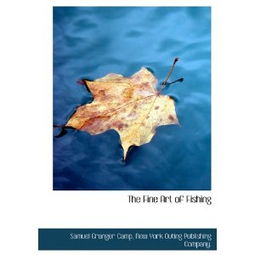
Content:
Fishing in lake bottom muck can be a challenging endeavor, but with the right techniques and knowledge, it can also be a highly rewarding experience. The murky waters and dense淤泥 can hide some of the most promising fishing spots, but with a few expert tips, you can navigate through the muck and catch some impressive catches. Here's a comprehensive guide to fishing in lake bottom muck, including essential techniques and tips to help you become a proficient angler in these conditions.
Understanding Lake Bottom Muck
Before diving into the fishing techniques, it's crucial to understand what lake bottom muck is and why it's prevalent in many bodies of water. Muck is a mixture of organic and inorganic materials that settle at the bottom of lakes, rivers, and ponds. It can be caused by various factors, including runoff from the land, decaying plant life, and animal waste. This muck can create a thick, gooey layer that makes it difficult for light to penetrate the water, which in turn affects the visibility for both fish and anglers.
Choosing the Right Equipment
To fish effectively in lake bottom muck, you need to have the right equipment. Here are some essential items to consider:
Rod and Reel: A medium-heavy to heavy-duty rod with a fast-action tip is ideal for battling fish in mucky waters. The reel should be a durable spinning or baitcasting reel with a strong drag system to handle the thick line and potential snags.
Line: Use a monofilament line with a high abrasion resistance, such as 20-30 lb test. Braided line can also be effective, but it may be more visible to fish in murky water.
Lures and Baits: In mucky waters, it's best to use lures and baits that mimic natural prey and are visible in low-light conditions. Soft plastics, spinnerbaits, and jigs are popular choices.
Leader and Swivels: A leader of 12-18 inches with a swivel at the end can help prevent tangles and snags when fishing through the muck.
Fishing Techniques
Locating the Muck: Before you start fishing, it's important to locate the muck. Look for areas with vegetation, fallen trees, or other structures that can contribute to the accumulation of organic matter.
Presenting Your Bait: In mucky waters, it's essential to present your bait in a way that mimics natural movement. Slow and steady retrieves are often more effective than fast, erratic movements.
Adjusting Your Lure Selection: Use lures that have a natural appearance in murky water. Soft plastics with lifelike movements and spinnerbaits with bright colors can attract fish in low visibility.
Depth Control: In mucky waters, fish may be found at various depths. Experiment with different depths to find where the fish are holding. A Carolina rig or a drop-shot rig can be effective for reaching different layers of the water column.
Timing: Fish in mucky waters may be more active during certain times of the day. Early morning and late evening are often the best times to fish, as these periods offer lower light conditions that can help conceal your presence.
Patience and Persistence: Fishing in muck requires patience and persistence. It's not uncommon to go for extended periods without a bite. Stay focused and be prepared to wait for the right moment.
Safety and Environmental Considerations
When fishing in lake bottom muck, it's important to prioritize safety and environmental responsibility:
Footwear: Wear appropriate footwear that provides good traction and protection against sharp objects and uneven terrain.
Hydration and Sun Protection: Stay hydrated and apply sunscreen, as the sun's rays can still be intense even through the muck.
Respect the Environment: Be mindful of your impact on the environment. Avoid disturbing the muck or causing erosion, and dispose of trash properly.
By following these techniques and tips, you can improve your chances of success when fishing in lake bottom muck. Remember that each body of water is unique, so it's important to adapt your approach based on the specific conditions you encounter. With practice and experience, you'll become a proficient angler capable of navigating through the muck and reeling in some impressive catches. Happy fishing!












